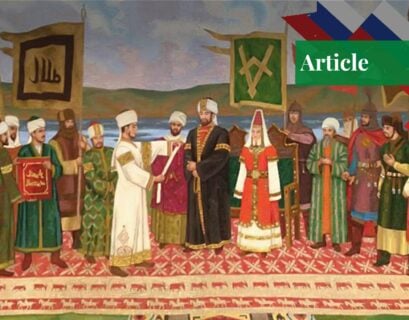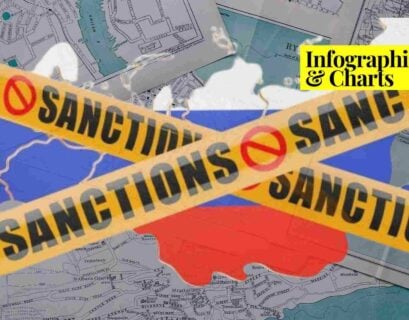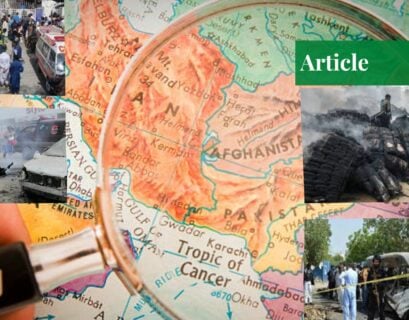Mirwaise Khan is pursuing an MPhil in Finance from BUITEMS. He also works as a columnist and has been writing opinion and editorial articles for the Daily Times.
Kazakhstan Demonstrations and Outcomes
On 1st January 2022, the government of Kazakhstan decided to halt the state-sponsored subsidies on fuel prices, liberalize the fuel market, and let the market forces dictate the prices of fuel. The government took this bold decision with the anticipation that the domestic demand would increase and it would ultimately lower the prices, but the decision of the government flopped as the prices of fuel almost doubled and reached 120 Tenge/liter.
The mountainous rise in the price of fuel provoked anger among the Kazakh citizen and thus thousands of distraught protesters took to the street of Kazakhstan to protest against the surging fuel prices in the oil-rich Central Asian country. The protest started on 2nd January 2022 and by 4th January it turned into an anti-government movement and took almost the whole country in its grip as hordes of Kazakh citizens joined the protest specifically in the city of Almaty and Nur-Sultan.
The protest turned massively brutal on Wednesday as some of the protestors among the masses started attacking the Kazakh police and security personnel with lethal guns. The violent demonstration killed 225 people which included 19 security personnel, and more than 4 thousand protesters suffered injuries. Under pressure, Kazakhstan’s President Kassym Jomart Tokayev sacked the current government to calm down the protestors.
Furthermore, in a television address, Kazakh President also called the Collective Security Treaty Organization (CSTO) to help Kazakhstan against some well-trained foreign terrorist elements participating in these protests who depicted themselves as protestors and covertly attacked security personnel and seized government buildings and infrastructures.
The Foreign Ministry of the Russian Federation also declared the vicious protests as an externally motivated attempt, with the use of trained and organized groups, to undermine the security and integrity of the Central Asian country. Similarly, Serbian President Aleksandar Vucic also claimed that foreign spy agencies were behind the violent chaos in Kazakhstan.
Collective Security Treaty Organization’s (CSTO) Response
Responding to the request of the Kazakh President, the Russian-led alliance CSTO sent peacekeeping forces to Kazakhstan to protect the government facilities and military infrastructure from the armed groups which showed themselves as protestors. Multiple reports stated that Russia sent more than 3000, Belarus deployed 500, Tajikistan stationed 200, Kyrgyzstan sent 150, and Armenia stationed 100 peacekeeping forces to Kazakhstan.

After instant support from Russia and other CSTO members, Kazakhstan’s security forces started an anti-terror operation against the armed groups in the cities of Nur-Sultan and Almaty. Within the few hours of the special operation, the Almaty International Airport, the Republic Square of Almaty, the residence of the former president, and all other government buildings and infrastructures were liberated from the control of the armed groups.
Finally, on 7th January, during the meeting of the counterterrorism committee, Kazakh President Tokayev announced the restoration of the constitutional order in all the regions of Kazakhstan. The Collective Security Council of CSTO used article 4 of the Collective Security Treaty as a foundation to send peacekeeping forces to Kazakhstan. Different contingents of CSTO member states took control of important strategic installations in Kazakhstan to protect them from looming terrorist attacks.
Russia itself holds both the space and military facilities in Kazakhstan and protecting them from any possible terrorist attack was in the greater interest of both Russia and Kazakhstan. Hence, after restoring peace and order in Kazakhstan, all the contingents of the Collective Security Treaty Organization (CSTO) members states withdrew themselves from Kazakhstan after the completion of their mission and their withdrawal was completed on 19th January 2022.
Lesson for the Organization of Islamic Cooperation (OIC)
The Collective Security Treaty Organization is an intergovernmental military alliance that is comprised of post-soviet states to fulfil their security needs. There is no common ethnic, cultural, or religious building block among the CSTO members that may unite them, and yet the instant military response of the CSTO’s member states upon the request of the Kazakh President to counter the externally attempted coup and violence prove that the alliance is still very much effective, active, united, and committed towards a common goal of security.
I believe that the unprecedented unity and commitment of the Collective Security Treaty Organization members in thwarting internal security threats to Kazakhstan is a lesson for the Organization of Islamic Cooperation (OIC) members. The OIC should have followed the footsteps of the CSTO in order to thwart all types of internal and external security threats to the Islamic world with unity and commitment.
Many internal and external security threats that the Islamic world faced in the last few decades, such as the invasion of Afghanistan in 2001 and Iraq in 2003 by US-NATO forces, the rise of al-Qaeda & Daesh in the Middle East and Afghanistan with the support of foreign elements, the invasion of Libya and Syria in 2011 by US-NATO forces, and the occupation of Kashmir and Palestine, could have been neutralized if OIC had a forum like CSTO.
The same type of tactic was used in Syria in 2011 when during protests, foreign intelligence networks armed protestors with weapons and as a result, the Arab country fell into calamity and destruction. If the OIC had a type of forum like that of the CSTO and if there existed unity among the OIC member states then Syria could have been saved from proxy war and destabilization in 2011.
Unfortunately, only Iran came to rescue Syria from being divided into a number of banana republics, and back then, it was again the Russian Federation under the leadership of President Vladimir Putin that came to rescue Syria in 2014 and saved it from destruction and disintegration. I believe it is still not too late and that there is still an opportunity for the OIC members to establish a security alliance like CSTO and repel the continuous oppression, subjugation, and terrorism imposed by the Western US-NATO alliance on the Islamic World.
If you want to submit your articles, research papers, and book reviews, please check the Submissions page.
The views and opinions expressed in this article/paper are the author’s own and do not necessarily reflect the editorial position of Paradigm Shift.



















